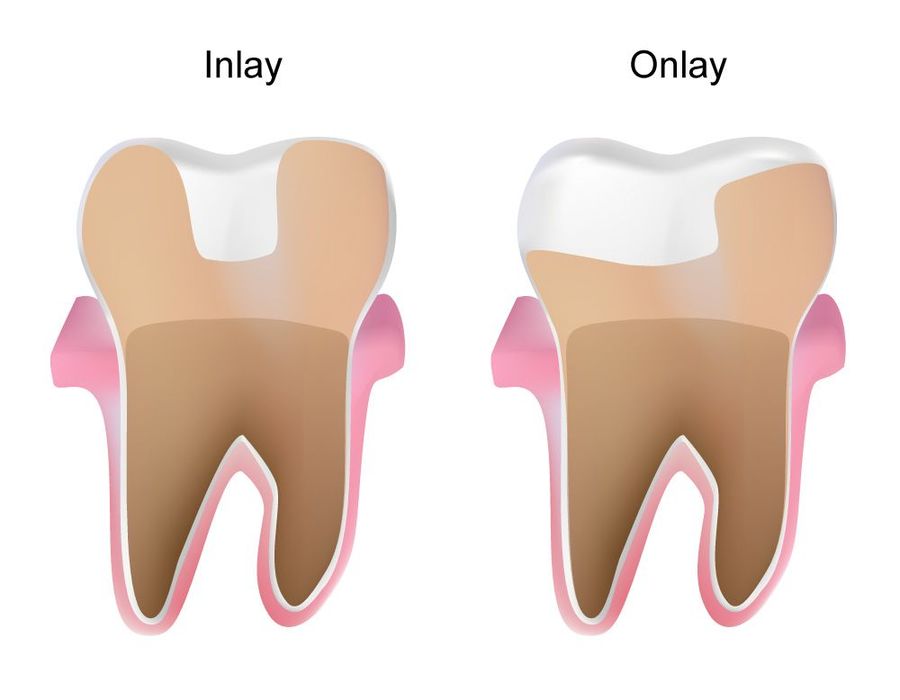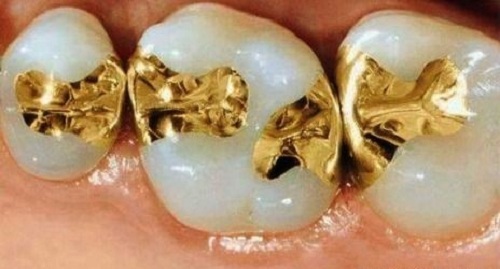Inlays / Onlays
INLAYS/ ONLAYS
Inlays and onlays are a type of indirect restorations, this suggests they’re made outside of the mouth. They’re primarily used to correct fractured, cracked or decayed teeth. These forms of restorations are necessary to treat damaged rear teeth that don’t seem to be in bad enough shape to need a crown.
Inlays: An inlay is larger than a filling but smaller than a crown. Inlays don’t extend over the cusps of a posterior tooth. They’re more durable than regular fillings made of composite resin or amalgam.
Onlays: An onlay is an indirect restoration covering one or more cusps of a posterior tooth. Compared to a crown, an onlay is less aggressive because less natural tooth structure needs to be removed to place the onlay.
AVAILABLE MATERIALS FOR INLAYS AND ONLAYS
⦁ Porcelain
⦁ Gold
⦁ Metal
⦁ Composite resin
INLAYS/ ONLAYS BENEFITS
⦁ Both are designed to repair cavities of tooth decay.
⦁ Help preserve as much tooth structure as possible
⦁ Helps with oral hygiene
⦁ Improved esthetic appearance (depending on material selection)
⦁ Inlays and onlays don’t shrink
⦁ Improved strength and longevity (can last up to 20 years or more)
PROCEDURE
The procedure for dental inlays or onlays may vary depending on the material selection, but it generally includes these steps:
⦁ The dentist will inject a dental anesthetic solution into your tooth and surrounding tissue.
⦁ A drill will be used to remove the damaged part of your tooth and will prepare the dental structure for an inlay or onlay.
⦁ A dental impression will be taken and it will be sent to the dental laboratory
⦁ Your dentist will cement a temporary inlay/onlay restoration until your permanent restoration is ready.
⦁ After 2-3 weeks the dentist will cement the definitive dental inlay or onlay with a resistant permanent cement.
⦁ The restoration will be polished and the dentist will ensure a comfortable bite.
HOW CAN I AVOID INLAYS AND ONLAYS?
⦁ Brushing at least twice a day
⦁ Flossing everyday
⦁ Avoid sugary foods
⦁ Regular dental visits
IMPORTANCE OF DENTAL CARE
Prevention is always the most effective dental treatment. It is important to visit the dental professional regularly because problems can exist without you knowing. If you need an inlay or onlay restoration be sure to talk to your dentist about what type of material is best for your case in particular.
Images


